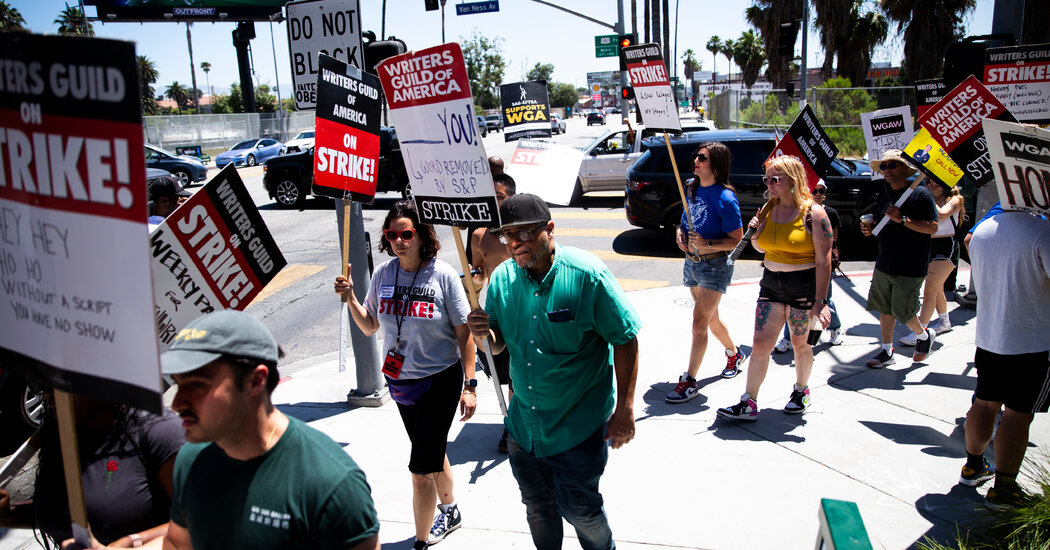The Writers Guild of America, which represents more than 11,000 television and film writers, and the Alliance of Motion Picture and Television Producers, which bargains for studios, have not held talks for three weeks. Last month, studios sweetened their offer — and then, in an unusual move, publicly disclosed the details, hoping rank-and-file guild members would be satisfied and pressure their leaders to make a deal.
“This was the companies’ plan from the beginning — not to bargain, but to jam us,” guild leaders said shortly afterward. “It is their only strategy — to bet that we will turn on each other.”
Union leaders have since insisted that the onus is on studios to keep improving their offer. The studios have rejected that demand, but it is a position supported by many Writers Guild members, including numerous showrunners. On Tuesday in Los Angeles, writers like Alexi Hawley (“The Rookie”) and Scott Gimple (“The Walking Dead”) helped stage a well-attended “showrunner solidarity day” picket at Fox Studios.
“I don’t think anybody is really second-guessing and looking for ways to cause some disruption in the leadership of the guild,” Steve Levitan, whose credits include “Just Shoot Me!” and “Modern Family,” told a reporter for an entertainment trade publication at the event. “We’re just always trying to see if there are any ways anybody can help.”
Behind the scenes, however, frustration among elite Writers Guild members has been mounting.
Ryan Murphy, the writer-producer behind television hits like “American Horror Story” and “9-1-1,” recently had a heated conversation about the strike with Chris Keyser, a senior Writers Guild official, according to two people close to Mr. Murphy, speaking on the condition of anonymity to describe a private discussion. Mr. Murphy set up a financial assistance fund for idled workers on his shows and committed $500,000 as a starting amount. Within days, he had $10 million in requests, the people said.




